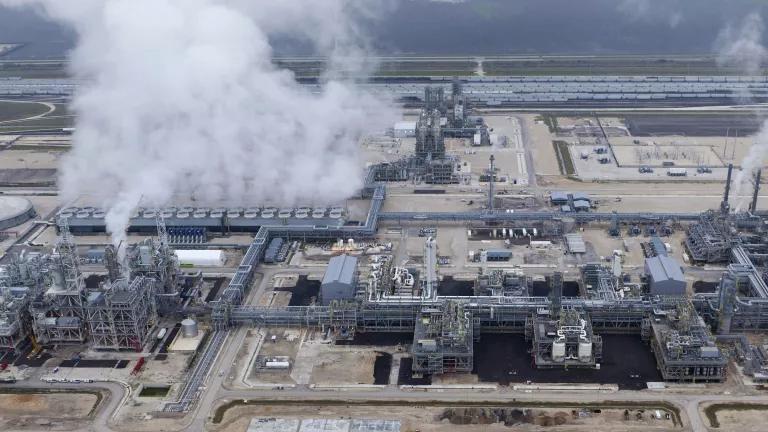Tomorrow, I’m headed to the U.S. Senate for a forum on the environmental impacts of shale gas development before the Energy and Natural Resources Committee. I’ll be joined by members of the oil and gas industry, as well as representatives from other environmental groups and state government.
The event itself will look something like a congressional hearing. But the Senators have invited us to have more of a roundtable discussion. The hope is that what we discuss will help inform their actions on fracking moving forward.
For my part, I plan to focus on the need to address a number of shortcomings in federal protections from the risks of fracking. At the top of that list is ending oil and gas industry exemptions in some of our nation’s most basic, protective environmental and public health laws – the Safe Drinking Water Act, the Clean Water Act, the Clean Air Act and federal hazardous waste law.
Additionally, I’ll be highlighting the need for the Obama Administration to significantly strengthen the draft rules for fracking on public lands that it released last week. These rules fall far short of what’s necessary to protect millions of acres of wild lands, as well as drinking water sources for millions of Americans (including private wells when homeowners don’t own their mineral rights, as well as large municipal watersheds like that of Washington, D.C.).
Here’s a brief overview of what I’ll be saying:
- Natural gas development is a major industrial activity that uses toxic chemicals, produces massive amounts of hazardous waste, releases methane (a potent climate change pollutant) and other dangerous air pollution, and has contaminated water and air in communities across the country.
- States have failed to protect their citizens to date from these threats. In fact, there is not a single state where fracking is taking place that has put forth comprehensive rules that sufficiently safeguard Americans. The public expects the federal government to limit the environmental harm from industry, and citizens in every state deserve that protection.
- Fracking should not be exempt from critical provisions of federal laws that have applied for decades to virtually every other industrial activity – laws that have proven to be effective and affordable. Congress should close the gaping loopholes in the Clean Air Act, Clean Water Act, Safe Drinking Water Act, federal hazardous waste laws and other statutes that give this industry a free pass for no good reason.
- Furthermore, the administration should be a model for other states. Unfortunately, the proposed rules released by the Bureau of Land Management last week are fundamentally flawed in a number of ways, putting Americans at risk.
- And to better understand how to protect Americans from the risks of fracking, Congress should support additional independent research on the broad impacts, including those to drinking water, public health and communities. The better we understand the risks, the better we can protect against them.
Americans in communities around the country are being bulldozed by an industry run amok, and they need action from our leaders in Washington to protect their clean water, clean air, health, and quality of life. I look forward to the opportunity to discuss what the federal government can do to change the course of this industry.




